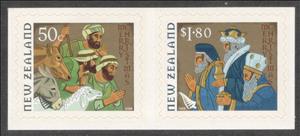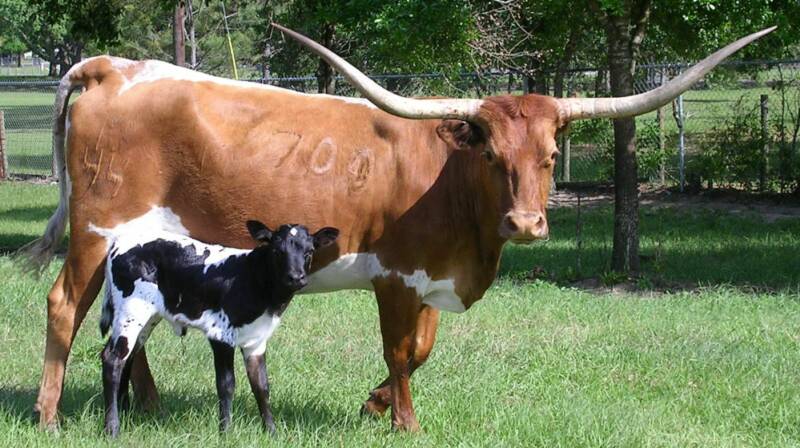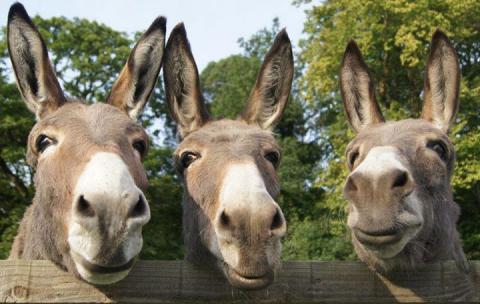Se-tenant: Christmas 2009 - Jumbo Roll (New Zealand 2009)
Christmas 2009 - Jumbo Roll (New Zealand 2009)
07 October (New Zealand ) within release Christmas 2009 (1st issue) goes into circulation Se-tenant Christmas 2009 - Jumbo Roll face value 2.30 New Zealand dollar
| Se-tenant Christmas 2009 - Jumbo Roll in catalogues | |
|---|---|
| Michel: | Mi: NZ 2655-2656 |
Se-tenant is square format.
Matrix around stamps intact. Plain backing paper. Phosphor frame tag.Also in the issue Christmas 2009 (1st issue):
- Booklet - Three Magi with Gifts face value 10*1.80;
- Booklet - Three Shepherds face value 10*50;
- Booklet Pane - Three Magi with Gifts booklet pane face value 10*1.80;
- Booklet Pane - Three Shepherds booklet pane face value 10*50;
- Se-tenant - Christmas 2009 - Jumbo Roll face value 2.30;
Se-tenant Christmas 2009 - Jumbo Roll it reflects the thematic directions:
Animals are multicellular, eukaryotic organisms of the kingdom Animalia (also called Metazoa). All animals are motile, meaning they can move spontaneously and independently, at some point in their lives. Their body plan eventually becomes fixed as they develop, although some undergo a process of metamorphosis later on in their lives. All animals are heterotrophs: they must ingest other organisms or their products for sustenance.
Bulls and cows (also known as cows and bulls or pigs and bulls) is a code-breaking mind or paper and pencil game for two or more players. The game is played in turns by two opponents who aim to decipher the other's secret code by trial and error.
Christmas or Christmas Day (Old English: Crīstesmæsse, meaning "Christ's Mass") is an annual festival commemorating the birth of Jesus Christ, observed most commonly on December 25 as a religious and cultural celebration among billions of people around the world. A feast central to the Christian liturgical year, it is prepared for by the season of Advent or the Nativity Fast and initiates the season of Christmastide, which historically in the West lasts twelve days and culminates on Twelfth Night; in some traditions, Christmastide includes an Octave. The traditional Christmas narrative, the Nativity of Jesus, delineated in the New Testament says that Jesus was born in Bethlehem, in accordance with messianic prophecies; when Joseph and Mary arrived in the city, the inn had no room and so they were offered a stable where the Christ Child was soon born, with angels proclaiming this news to shepherds who then disseminated the message furthermore. Christmas Day is a public holiday in many of the world's nations, is celebrated religiously by the vast majority of Christians, as well as culturally by a number of non-Christian people, and is an integral part of the holiday season, while some Christian groups reject the celebration. In several countries, celebrating Christmas Eve on December 24 has the main focus rather than December 25, with gift-giving and sharing a traditional meal with the family.
The donkey is a domesticated equine. It derives from the African wild ass, Equus africanus, and may be classified either as a subspecies thereof, Equus africanus asinus, or as a separate species, Equus asinus. It was domesticated in Africa some 5000–7000 years ago,and has been used mainly as a working animal since that time.
Headgear may be worn for protection against cold (such as the Canadian tuque), heat, rain and other precipitation, glare, sunburn, sunstroke, dust, contaminants, etc. Helmets are worn for protection in battle or against impact, for instance when riding bicycles or motor vehicles. There are also hats that are worn for protection from the cold
A gift or a present is an item given to someone, without the expectation of payment or anything in return. An item is not a gift if that item is already owned by the one to whom it is given. Although gift-giving might involve an expectation of reciprocity, a gift is meant to be free. In many countries, the act of mutually exchanging money, goods, etc. may sustain social relationship and contribute to social cohesion. Economists have elaborated the economics of gift-giving into the notion of a gift economy. By extension, the term gift can refer to any item or act of service that makes the other happier or less sad, especially as a favour, including forgiveness and kindness. Gifts are often presented on occasions such as birthdays and holidays.






